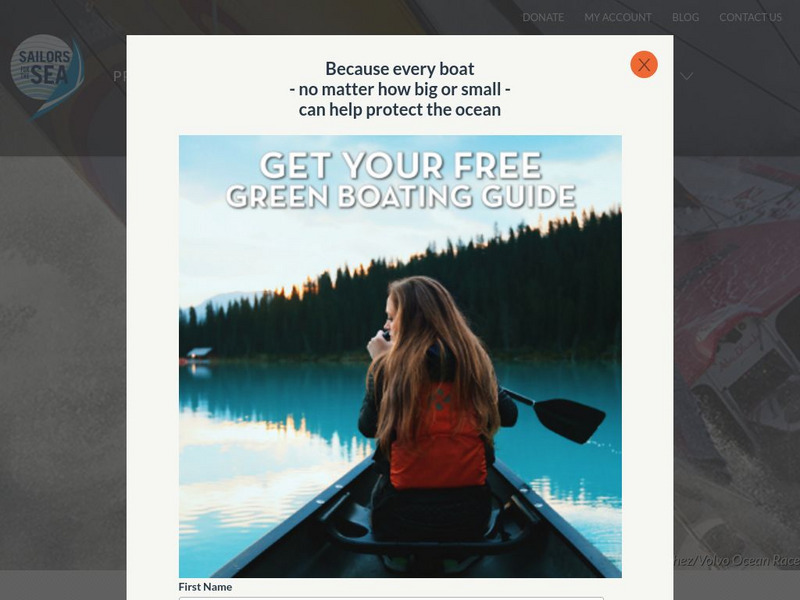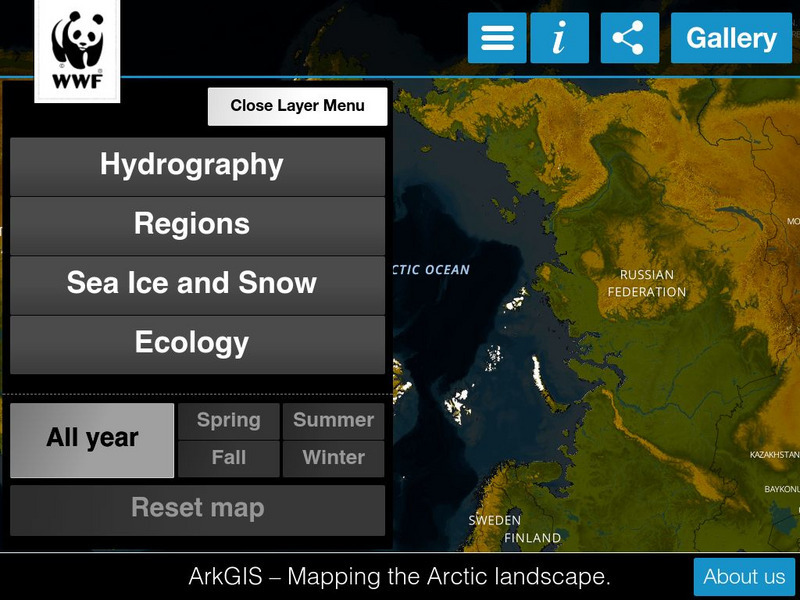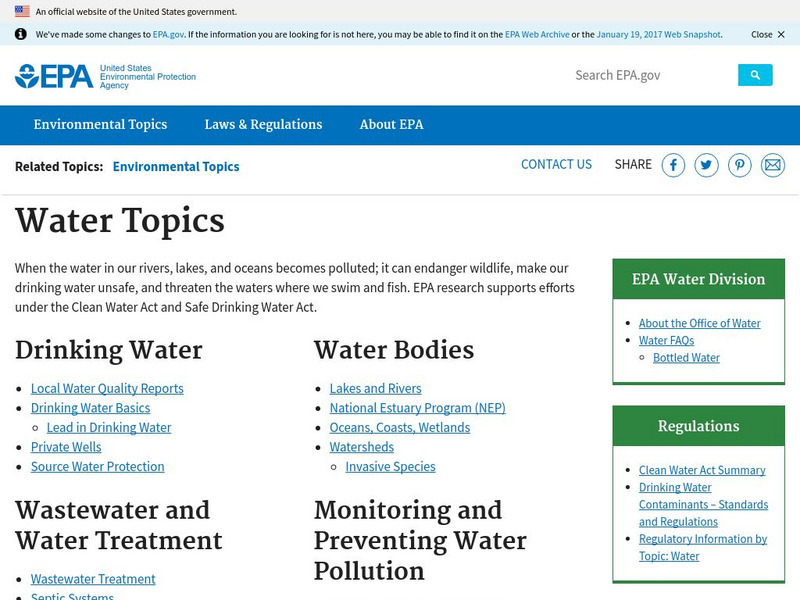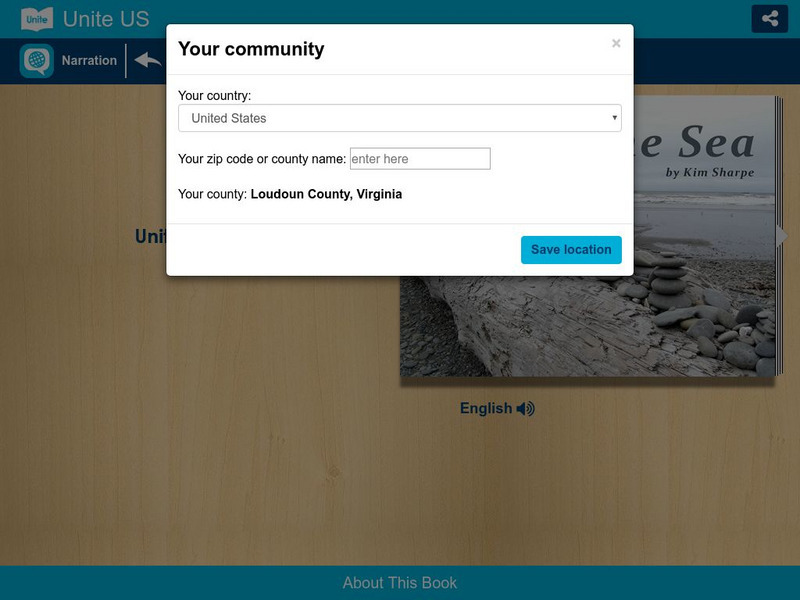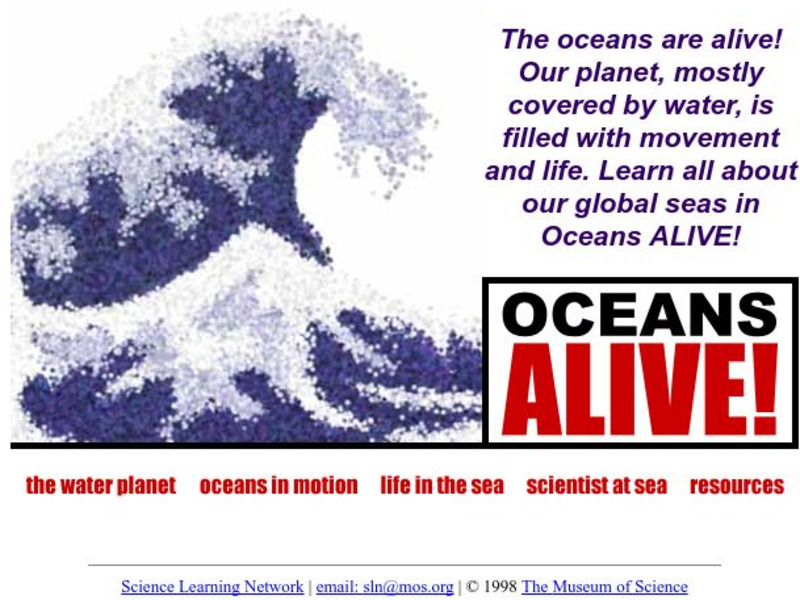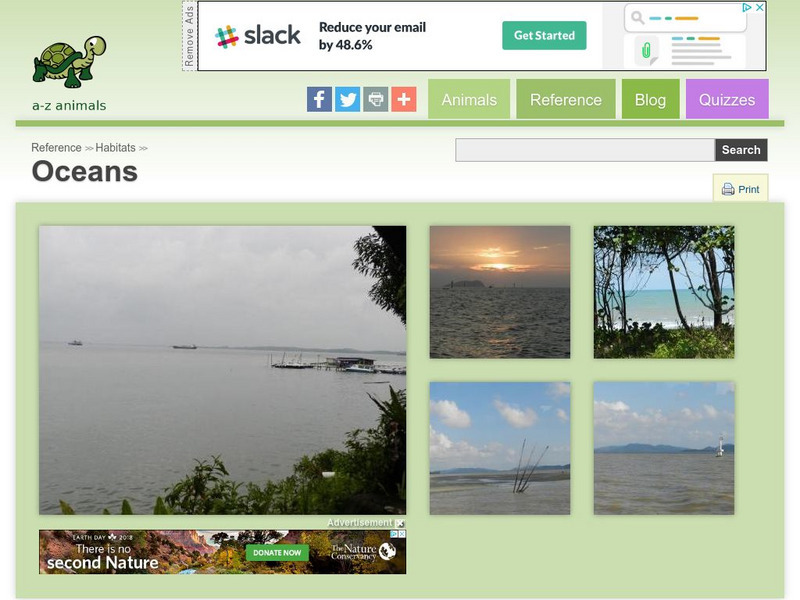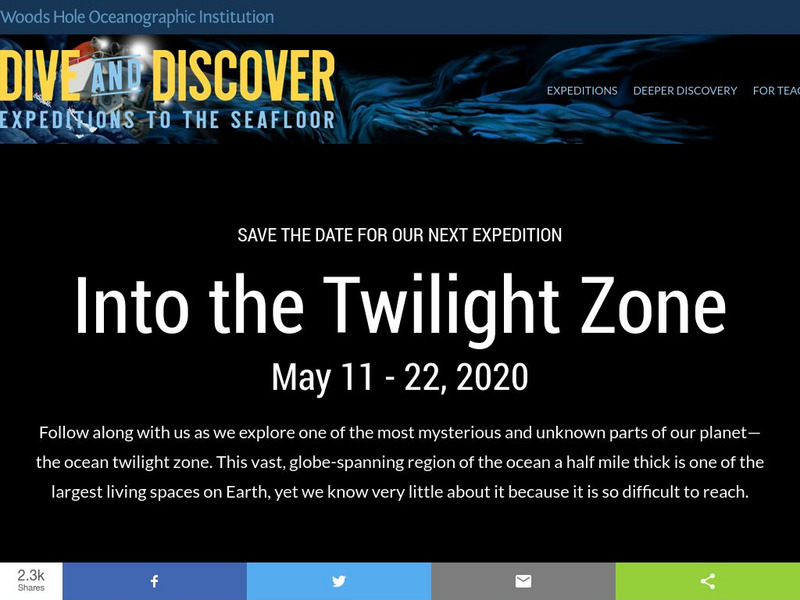University of Michigan
Univ. Of Michigan: Naval Architecture and Engineering
Website for the Department of Naval Architecture and Marine Engineering at the University of Michigan.
Woods Hole Oceanographic Institution
Woods Hole Oceanographic Institute: Where Can I Get Answers About Oceanography?
This site provides answers to frequently asked questions about oceanography. Find out more about ocean science by following the link above. What is the difference between oceanography and marine biology?
National Association of Geoscience Teachers
Serc: Modeling Sea Level: Lateral and Vertical Facies Changes
What do sequences of sedimentary rocks tell us about how sea level has changed? Learners will use a tube and bead (or ball) model to visualize and predict how changes in sea level can control the lateral and vertical facies distribution...
Other
Sailors for the Sea: Protecting Our Oceans
Did you know that you can make a difference in keeping our oceans safe and beautiful? Become more knowledgeable about our oceans and the harm they face each day, including invasive species, overfishing and habitat alteration by perusing...
Other
Ark Gis: Exploring the Arctic
Interactive mapping platform that combines and integrates existing data about the environment and human activity in the Arctic.
US Environmental Protection Agency
Epa: Water Resources: Water Bodies
Learn about EPA's work to protect and manage water resources and what you can do to help.
Unite for Literacy
Unite for Literacy: Earth and Sky: By the Sea
Read about the different sights you can see along the seashore. Includes audio narration in English and Turkish with text in English.
Encyclopedia of Earth
Encyclopedia of Earth: Abyssal Zone
This in-depth resource discusses the abyssal zone of the ocean. Includes a diagram and many facts about this zone.
Exploring Nature
Exploring Nature Educational Resource: Oceans of the World
A set of illustrated fact pages, and some activity sheets, on coral reefs, tidal pools, and ocean ecosystems. Find maps, graphic organizers, and a movie link to tidal zones. Hyperlinks to specialized vocabulary words are also provided....
Museum of Science
Museum of Science: Oceans Alive
There are links to the water planet, oceans in motion, life in the sea and resources. You will learn about the physical features of an ocean, changes in the ocean and the water cycle.
University of Washington
University of Washington: Ctenophores
This is an advanced essay on the biology of ocean-dwelling "comb jellies."
PBS
Pbs Kids: Wild Kratts: Capture the Fishmobiles
Utilize Creature Powers to capture as many fish as you can while riding around in the ocean in miniature fish-themed vehicles called Fishmobiles. Can you keep up with the rapid, precise movements of schooling fish?
Other
Whitman College: Deep Sea Pages
Descriptions and pictures of creatures that live at abyssal depths and on the abyssal plains of the world ocean. Link to other sites.
TED Talks
Ted: Ted Ed: Why Are Sharks So Awesome?
Sharks have been celebrated as powerful gods by some native cultures. And today, sharks are recognized as apex predators of the world's ocean. What is it that makes these fish worthy of our ancient legends and so successful in the seas?...
A-Z Animals
A Z Animals: Reference: Habitats: Oceans
Learn about the ocean ecosystem, and how its characteristics affect the life within it.
Science Struck
Science Struck: A Helpful Guide to Understand the Photic Zone
The photic zone is the upper layer of the ocean where sunlight can penetrate and support photosynthesis. This article explains the characteristics of this zone, the food chain that exists there, the adaptations of the plants and animals,...
Wikimedia
Wikipedia: Bathyal Zone
Learn where this ocean zone is located, average temperature and the unique traits of the animals that reside there.
CK-12 Foundation
Ck 12: Earth Science: Deposition by Waves
[Free Registration/Login may be required to access all resource tools.] Describes terrain features formed by ocean waves.
Mariners' Museum and Park
The Mariner's Museum: Vasco Nunez De Balboa
A biography of the life of explorer Vasco Nunez de Balboa.
Australian Broadcasting Corporation
Australian Broadcasting Corporation: Oceans Alive: Cool, Wet Facts
Did you know that turtles migrate 1400 miles to lay their eggs? Did you know that penguins swim underwater at 55 MPH? Click on this site to learn more interesting facts.
US Senate
Us Senate Committee Commerce, Science and Transportation
The Senate Committee on Commerce, Science and Transportation has jurisdiction over several areas. Come and find out more about this powerful committee by checking out this resource.
NOAA
Noaa: Ocean Facts on Runoff Pollution
Find out how water pollution can be prevented and how it affects you.
San Diego State University
San Diego State University: Researching Research
This comprehensive unit site from the San Diego State University is geared towards seventh grade math and science students. "Students will chose a research project currently in progress and research it using traditional techniques, the...
Woods Hole Oceanographic Institution
Woods Hole Oceanographic Institute: Dive and Discover: Expeditions to Sea Floor
Join Woods Hole scientists as they search for new volcanic eruptions on the ridge system in the eastern Pacific.





